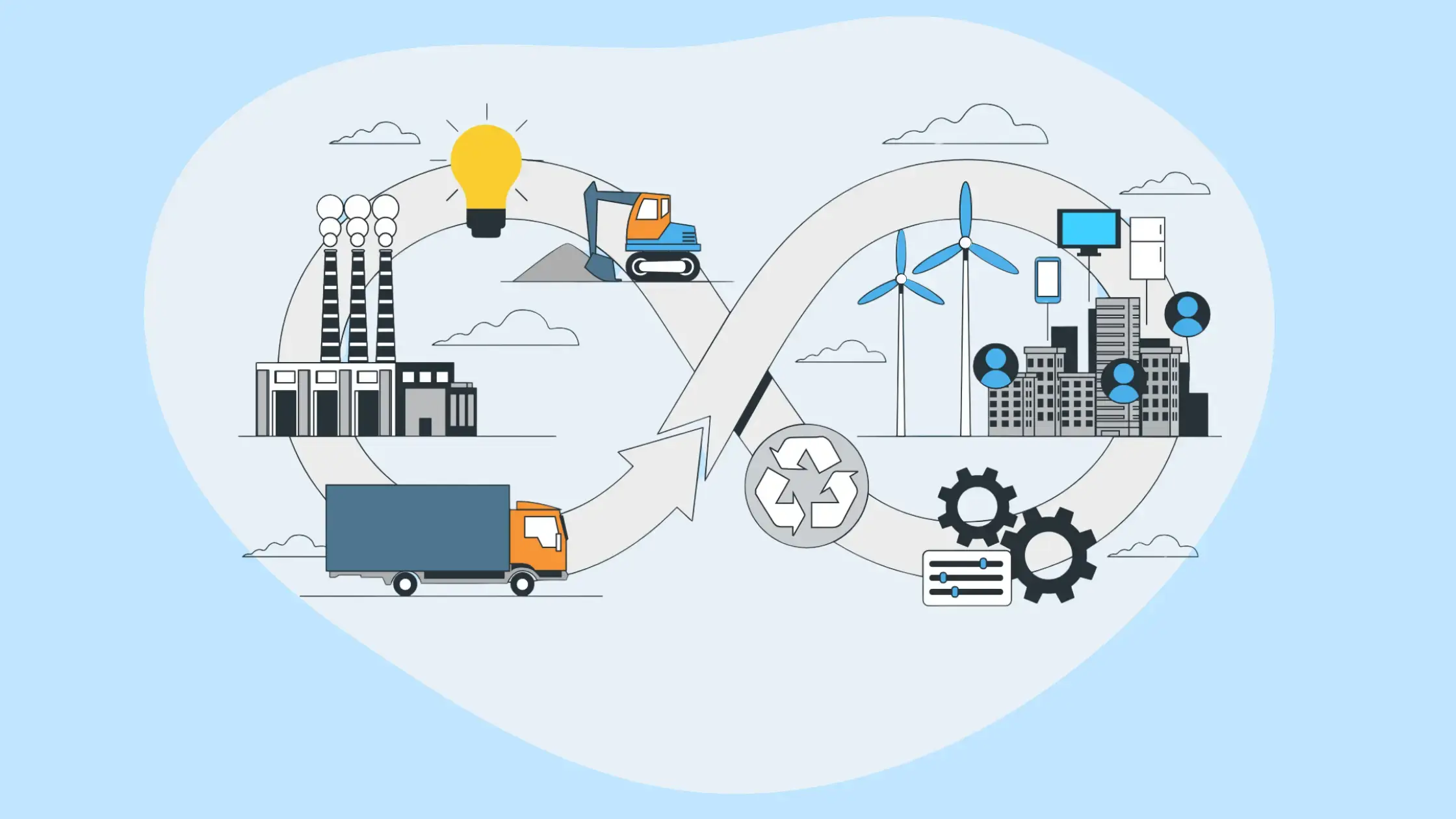TL;DR
- Workplace culture is crucial and has shifted significantly with the move to remote working.
- Healthy online workplace cultures require clear communication, established rituals, and employee feedback.
- Regular face-to-face meetings and mentorship programmes foster connection and guidance remotely.
- Building psychological safety and practising patience and empathy are essential for remote teams.
Workplace culture is an important part of any business. With the move to remote working, adapting this culture to the online world is essential for ongoing employee engagement.
Workplace culture has seen many significant changes over the past two years. Perhaps one of the most notable is the switch from physical communication and collaboration to almost exclusively online work relations.
This dramatic shift has meant that companies need to change their approach towards foundational aspects of workplace culture. In the past, physical teamwork allowed employees to connect and engage with one another in a familiar way.
But now that almost all the work is being done online, methods of engagement, communication, and trust must be looked at from a new perspective.
A healthy workplace culture is imperative for any team of employees to thrive. However, now that physical interaction is all but removed from the equation, companies must seek new methods of defining workplace culture that’s navigable from a remote standpoint.
What Is Online Workplace Culture And Why Is It Important?
Workplace culture is the underlying social, emotional, and psychological dynamics that keep company's identity strong. It encapsulates both the nuanced and pragmatic ways in which a group of employees perceives both their position within the company and the policies that come with it.
A company with a healthy workplace culture can look like -
-
Open lines of communication
-
Swift conflict resolution
-
A sense of both individual and team value
-
Strong company identity
-
Mutual respect between employees of different positions
-
Emotional and psychological safety
-
Teamwork mindset
You can look at workplace culture like any other culture. The overall tone, pace, and nature of social engagement within the workplace ultimately define how projects get delivered and what style of collaboration sees those projects to their completion.
An organisation’s culture defines how employees behave within the workplace and establishes a sense of identity for individuals to associate with their work. Without a definitive workplace culture, the structure of a company will struggle to remain intact.
Maintaining the structural integrity of a company is important for several reasons. When the needs and values of employees are consistent with their company’s, work becomes more enjoyable for everyone. When work becomes enjoyable, it is much easier to sustain progress.
Establishing a workplace culture gives employees a benchmark to aspire to. If everyone else commits to a respectful and efficient approach to work, others will do the same.
Cultivating workplace culture gives companies the opportunity to create a corporate dynamic that is healthy and in alignment with their specific ideals. Without that structure, companies will struggle to keep employees happy, productive, and engaged with one another.
In any culture, the structure, traditions, and social dynamics provide individuals with a sense of belonging to a greater whole. This is the core of what workplace culture aims to provide a sense of personal value and contribution to one’s environment.
How To Create A Healthy Online Workplace Culture
Understanding the importance of workplace culture is one thing. But implementing a system that works is another. That, combined with the additional weight of shifting completely from the physical world to the digital world is enough to give most supervisors grey hairs.
The transition from working in a physical office into a remote online one is not easy. But that doesn’t mean there aren’t ways to lighten the load. In fact, the internet is full of information on how to face these globally relevant challenges, and we’re about to get stuck into it.
Let’s go through eight different ways you can elevate your company’s online work culture that will leave everyone feeling more focused, valued, and secure in their role within the team.
1. Be clear about remote working expectations and policies
It’s so much easier to do your job well when you know exactly what’s expected of you, and why. Amidst all the chaos that comes with working remotely after a lifetime of working in physical, shared spaces, feeling scattered and confused is a natural response.
Being crystal clear about the expectations you have of your staff from a remote online perspective (as opposed to a physical one) will give them the confidence and surety they need to perform at their best.
2. Create rituals unique to your workplace
Many strong workplace cultures adopt rituals to help employees identify with the company. And to create some consistency in weekly or monthly routines. Rituals help us connect with our environment, and add much-needed structure to our lives.
Your workplace rituals needn’t be expensive or complicated. Something as simple as a remote team coffee break or lunch can reinforce a sense of inclusion and stability in employee’s lives. Things like happy hour on Friday afternoons, remote team-building activities or daily team catch-ups can keep spirits high and schedules on track.
Work-focused rituals are also useful in improving engagement with employees. Having a morning briefing session is a great way to add structure to the day, as well as de-briefs at the end of the day. Any consistent plans to meet virtually with a specific goal in mind can be effective.
3. Ask for feedback from employees
Much of the time, a manager or supervisor will remain unaware of an issue unless someone has the opportunity to speak up. While you might encourage your employees to come to you with issues, they might feel unsure of how to do so when push comes to shove.
This is why it is so important for companies to actively ask employees for feedback. Even though your permission might not feel technically necessary, employees will always appreciate getting encouraged to speak up about what may be bothering them.
4. Communicate goals clearly
Communication is one of the hardest things to get right when transitioning from a physical work environment to a digital one.
In the past, you could simply walk up to someone with a question and receive an answer right away. But now, there is a barrier of space and time between employees that is not always easy to breach. You might have to wait for someone to get back online, or struggle with a poor connection.
Because of these hurdles, it is extremely important for team leaders to communicate goals clearly and without any ambiguity. This approach can help reduce the number of miscommunications. Plus, it keeps everyone feeling on top of their responsibilities.
5. Have regular face-to-face meetings
While there are a string of highly efficient remote communication tools now available, face-to-face meetings deliver a level of communication that simply isn’t possible via plain text.
Being able to physically observe others’ facial expressions and tone of voice allows for more fluid communication between employees.
While there has been recent debate around the exhaustive nature of excessive video calls, studies still show that it’s the most effective way to communicate with others from a remote position.
6. Establish a mentorship program
In times of uncertainty, it’s only natural for people to look to those more experienced than them for guidance. Mentorship programs can create a healthy workplace culture by giving younger, less experienced employees a positive example to look up to.
Pairing younger or less experienced employees with those who have earned their status in the office can facilitate a culture of respect between workers and give new employees something to aspire to.
7. Build a foundation of psychological safety
Particularly because this is a trying time for everyone, promoting psychological safety in any work environment is crucial to maintaining a healthy workplace culture. People need to feel as though their emotional and psychological needs are being considered in order to deliver their best work.
Psychological safety means employees trust that they won’t get humiliated or punished for speaking up. Nor will they get rejected or ostracised socially. It’s the belief that others will treat you with respect and include your opinion in their strategies.
8. Practise patience and empathy
Making the leap from physical teamwork to remote teamwork is going to require some patience from everyone involved. This is a big transition for all members of the team, no matter how large or small their role within it is.
Practising patience and empathy will not only make your collaborative efforts much smoother, but it will also create a stronger, healthier workplace culture that everyone can benefit from.
Listening to others, choosing empathy over opposition, and generally aiming to understand others’ perspectives will improve the productivity of your team while creating a positive company culture that withstands the test of time.
Be Ready To Make The Remote Workplace Better!
Establishing a healthy workplace culture is no small task, especially in the midst of an international pandemic. However, taking the initiative now can save your company a lot of drama and frustration later on down the line.
In fact, this might be a better time than ever to revisit the structure of your company’s workplace culture. All companies need to mould and adapt to the reality of the world around them, and sometimes it takes a big shift like this one to create the space necessary for improvement.
The perfect time for positive change usually comes after a major systemic upset like COVID-19. If you and your team can survive this, they can survive anything!
FAQs - Frequently Asked Questions
What is online workplace culture?
Online workplace culture refers to the shared values, behaviours, and social interactions that shape how employees connect and collaborate in a virtual work environment. It is vital for employee engagement and company identity, especially when working remotely.
How can I establish a healthy remote work culture?
To build a healthy remote work culture, be clear about expectations, create unique rituals, encourage feedback, and communicate goals clearly. Implementing these steps helps foster connection and productivity among remote teams.
Why is psychological safety important in remote teams?
Psychological safety ensures that employees feel comfortable sharing ideas and concerns without fear of judgement. This trust boosts collaboration, creativity, and overall team wellbeing, which is crucial when teams work remotely.
How do regular face-to-face meetings benefit remote employees?
Regular face-to-face meetings via video calls allow remote employees to read facial expressions and tone of voice. This improves understanding, reduces miscommunication, and strengthens relationships, helping maintain a strong workplace culture.



















